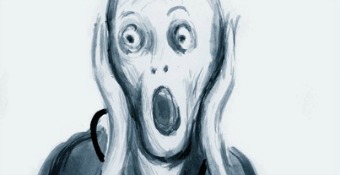GPs cannot contain the chaos much longer

Do you ever feel that, as a GP, you’re dealing with a complex system whose behaviour is so unpredictable as to appear random? Good, because you are. That, after all, is the definition of chaos. And one of many things GPs are excellent at is creating, out of chaos, a sense of order. This applies to the chaos of political initiatives, patients and – especially nowadays – secondary care.
We cannot legislate for a system that is massive, complex and mad
By the time you read this, the furore over the winter implosion of hospital services will probably be wrapping cod and chips. Forgotten, or dissipated by shifting the blame away from politicians and, judging by the latest headlines, onto us lazy, feckless GPs.
We haven’t forgotten, though: the winter crisis is merely an acute-on-chronic exacerbation of hospital dysfunction. Some of my patients won’t have forgotten, either. Like the elderly man who should have been an ‘avoiding unplanned admissions’ exemplar but turned out to be my most risible DES fail yet. End-stage COPD, revolving door admissions, and the answer to the ‘Surprise’ question being, ‘Isn’t he already?’ So: liaison with respiratory consultant to confirm switch to palliation, tick; long chat with patient and family explaining and agreeing approach, tick; emails to others involved confirming change in management, tick; mobilisation of community services, tick.
What could possibly go wrong? This: within two hours of a home visit for a final discussion about our agreed approach – specifically, ‘no more hospital’ – he was back in hospital. To everyone’s bewilderment, an ambulance had turned up, sent by ambulatory care on the basis of an abnormal blood test picked up from an admission the previous week of which I knew nothing.
Just one example of how, no matter how hard we try, we cannot legislate for a system that is massive, complex, underfunded, stressed, protocol driven, and mad. GPs simply cannot sort out the aftermath for each and every patient, not when what was once a trickle is now a flood. Only this week I have spotted a horrendous drug error on a discharge letter, an overlooked internal referral and a significant missed scan abnormality which at least counterbalances all those over-investigated incidentalomas. And these are just the highlights among the run-of-the-mill dysfunction we sort out daily, like today’s arthritic man I’d sent for physiotherapy who, via the standard noctor/scan/onward referral pantomime, ended up seeing a consultant, who has suggested I refer him for physiotherapy.
It’s overwhelming. As the hospital situation becomes intolerable, so does our role as their patient liaison officers, sense co-ordinators and safety-netters.
It’s hard to know where we go from here. Especially as it looks like the Government, with chilling predictability, is pinning the blame on us GPs – portraying us as the cause of the problem when we’ve been busting our GI tracts to mitigate its effects. I’d suggest we look to the Greeks who, after all, knew a thing or two about medicine. Because, according to Greek mythology, what came after chaos? Darkness. Politicians, you’ve been warned.
Dr Tony Copperfield is a GP in Essex. You can follow him on Twitter @DocCopperfield
Pulse July survey
Take our July 2025 survey to potentially win £1.000 worth of tokens











